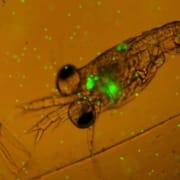Last week, the European Commission published a long-awaited draft legislative proposal. The new law should limit the use of microplastics in certain products, including cosmetics and personal care products.
For years, the Plastic Soup Foundation has been campaigning against the use of microplastics in cosmetics and personal care products and we see legislation on the use of microplastics as a huge victory.
Disappointingly, however, the EC uses a very narrow definition of microplastics.As a result, many synthetic polymers such as liquid, soluble and biodegradable polymers are not covered by the proposed law.
In addition, the proposal includes outrageously long transition periods of up to 12 years for certain makeup products. This means that the use of microplastics will continue long after the law has already gone into effect.
BEAT THE MICROBEAD CAMPAIGN
Earlier this year, on April 7, while the European Commission was still working on this proposal, the Plastic Soup Foundation published the report Plastic: the Hidden Beauty Ingredient.In this report we demonstrate the urgency of strong regulations for intentionally added microplastics. More than 7,704 cosmetics and personal care products were analyzed for this report, which showed that as many as 87% of the products from the most popular brands of the four largest manufacturers in Europe contained microplastics.
ALARMINGLY MANY SYNTHETIC POLYMERS EXCLUDED
In addition, the report includes a scientific statement, supported by members of the scientific community, about the environmental and human health hazards of soluble, liquid and “biodegradable” polymers. It states that far too little is known about the risks of these synthetic polymers and that hazard assessments should be carried out before they are allowed in products on the European market. The fact that the EC is now proposing to exempt the mentioned polymer groups from regulation is therefore very worrying.
FORTUNATELY, NANOPLASTICS ARE REGULATED
So-called nanoplastics, plastic particles smaller than 100 nanometers, will, however, be regulated according to this draft proposal, because there is no lower limit of particle size used in the definition.
This is what we and other NGOs have been arguing for. It is precisely these particles that pose a threat because they can penetrate deep into organisms. The true impact of this inclusion, however, remains uncertain, as the EC proposal simultaneously justifies excluding nanoplastics when analytical methods to detect these particles are lacking.
LONG TRANSITION PERIODS: 12 YEARS FOR SOME MAKEUP ITEMS
The proposal also includes transition periods for companies to adapt to the new rules. The cosmetics industry will have four years to get rid of microplastics from “rinse-off” products and six years for “leave-on” cosmetics. The Plastic Soup Foundation believesthese transition periods are far too long. Not only are there plenty of plastic-free alternatives available, but the industry also needs to be able to transition more quickly.
Most shocking, however, is that a 12-year transition period has been proposed for products such as makeup, lipstick and nail polish. This is unacceptably long. Therefore, we urge the European Commission to drastically reduce this transition period in the upcoming legislation.
FINAL SAY FOR EU MEMBER STATES
On September 23, EU member state representatives will meet in a special REACH-committee meeting to discuss the proposal. We call upon these representatives to ensure that this draft is strengthened to stop this irreversible form of pollution once and for all.
WHAT CAN YOU DO?
Almost 50,000 people have signed the petition for a European ban on all intentionally added microplastics in cosmetics and personal care products. Help us reach 100,000 signatures.





